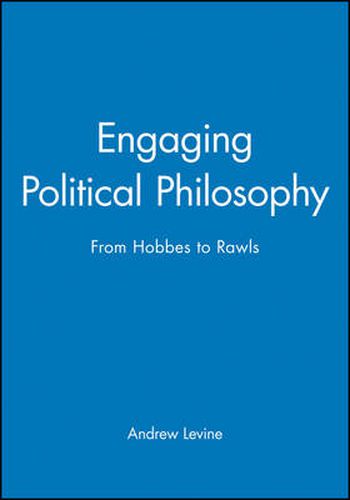Readings Newsletter
Become a Readings Member to make your shopping experience even easier.
Sign in or sign up for free!
You’re not far away from qualifying for FREE standard shipping within Australia
You’ve qualified for FREE standard shipping within Australia
The cart is loading…






Engaging Political Philosophy investigates the political philosophies of Hobbes, Rousseau, Locke, Mill, Rawls, and Marx and reveals the scope and limits of the philosophical tradition they helped to forge. The principal subject of the essays on Hobbes and Rousseau is the state and, more generally, political authority and political obligation. The chapters on Locke and Mill focus mainly on liberalism, and on authority’s rightful limits. All of these issues are resumed in the section on Rawls, where the main topic is justice, but where the notion of political legitimacy developed in Political Liberalism is also a prime concern. The chapter on Marx addresses many of the issues raised in the earlier essays both from the perspective of his early writings, and from the vantage-point provided by his mature theories of the state and history. While the essays are relatively self-contained, a cohesive narrative about modern political philosophy emerges from them to create both an accessible introduction and an interesting, original interpretation of ideas that have influenced our society.
$9.00 standard shipping within Australia
FREE standard shipping within Australia for orders over $100.00
Express & International shipping calculated at checkout
Engaging Political Philosophy investigates the political philosophies of Hobbes, Rousseau, Locke, Mill, Rawls, and Marx and reveals the scope and limits of the philosophical tradition they helped to forge. The principal subject of the essays on Hobbes and Rousseau is the state and, more generally, political authority and political obligation. The chapters on Locke and Mill focus mainly on liberalism, and on authority’s rightful limits. All of these issues are resumed in the section on Rawls, where the main topic is justice, but where the notion of political legitimacy developed in Political Liberalism is also a prime concern. The chapter on Marx addresses many of the issues raised in the earlier essays both from the perspective of his early writings, and from the vantage-point provided by his mature theories of the state and history. While the essays are relatively self-contained, a cohesive narrative about modern political philosophy emerges from them to create both an accessible introduction and an interesting, original interpretation of ideas that have influenced our society.